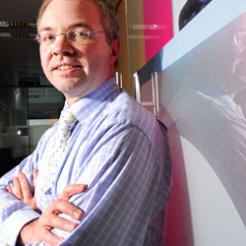Research conducted by the Third Sector Research Centre into the relationship between the Big Lottery Fund and the sector has identified five areas in need of improvement, which include transparency and independence.
The research report, part-funded by BIG, will influence its future strategy in its dealings with the charity and voluntary sector. The organisation is planning ahead of its new policy directions which will shortly be set by the Office for Civil Society, and in light of a new sponsor department (from the Department of Culture Media and Sport to the Office for Civil Society) and a cap on its administration costs.
Released today, the report compiles five stages of research including interviews with senior staff, an online survey of almost 1,700 BIG applicants, and analysis of BIG's database of almost 150,000 England-based applicants.
Successes
Positive conclusions include the perception that BIG has helped grow and maintain small-scale voluntary action, with two-fifths of survey respondents agreeing that BIG had enabled the continuation of their organisation. A further 10 per cent agree that BIG had enabled the organisation to form in the first instance, and 60 per cent agree that BIG had enabled the expansion of their organisation.
Respondents also acknowledged improvements in skills through their involvement with BIG, such as three-quarters of successful applicants who agreed their writing had improved as a consequence, met with one third of unsuccessful applicants agreeing to the same.
Room for improvement
But the report also finds that there are inconsistencies between parts of the sector in how they perceive the actions and policies of the funder. For instance while some found BIG to be 'flexible and responsive', others 'felt it was overly bureaucratic'. Some respondents also identified what was referred to as a 'charmed circle' of organisations able to influence decision-making.
It's many levels of responsibility - to the third sector, to communities and individuals and to those providing its money, ie the government and the public - have created challenges for BIG, the report assessed, and concludes that "While BIG on the whole has got the balance right in these difficult areas to date, it treads along a precarious tightrope".
There were five key areas where the need for improvement was acknowledged in the outcomes of the report:
Engagement - Some respondents felt that BIG was not equally engaged with third sector organisations. TSRC extracted from this the question: "How could BIG do more to widen and deepen its relationship with the sector?"
Transparency - Concerns were raised around how funding decisions were made, and what thinking lies behind strategies for the third sector. The issue of transparency was found to a degree to be problematic both ways, including information submitted within applications. A resulting conflict of trust was therefore identified.
Intelligence - BIG was seen by some to provide leadership to the sector on measuring outcomes, but continues to concentrate on outputs itself. Questions were also raised over BIG's use and sharing of intelligence, particularly in its decision making.
Independence - BIG is not an independent organisation, TSRC's report acknowledges, highlighting potential 'threats' from coalition policies, BIG's delivery of non-Lottery programmes and the introduction of a new sponsor body. Respondents were concerned about maintaining a distinction between BIG and the government.
Two potential strategies to tackle this challenge are identified - repositioning itself closer to foundations and away from government, or communicating better the constraints it is currently under and its successes in maintaining independence thus far.
But the report adds to fears raised by the Directory of Social Change in November last year about the independence of BIG. Responding to BIG's proposed new policy directions, DSC raised concerns over plans to making the funder responsible for the growth of the social investment market.
Jay Kennedy, head of policy at DSC’s said at the time that this “sounds like the government’s mission for Big Society Capital and is not an appropriate role for the major grantmaking Lottery distributor”.
Activity - The final point of concern was that there is no agreement over whether BIG wants to be a policy maker for the charity and voluntary sector. Areas where BIG has actively influenced policy were identified, but there was no consistency with which the funder was doing so. The report asks the question 'Should BIG be a more 'active' policy actor in relation to the third sector and if so how?"
Peter Wanless, BIG chief executive (pictured) said: "This research, along with our new policy directions and our refreshed strategic framework with help inform our work and future investments."
Angela Ellis Paine, who led the research by TSRC said: "We hope this report offers BIG a systematic way to develop their strategies by addressing fundamental questions about who they want to be and what they want to achieve. These questions are not for BIG to answer alone, but in conversation with the sector and other stakeholders."









